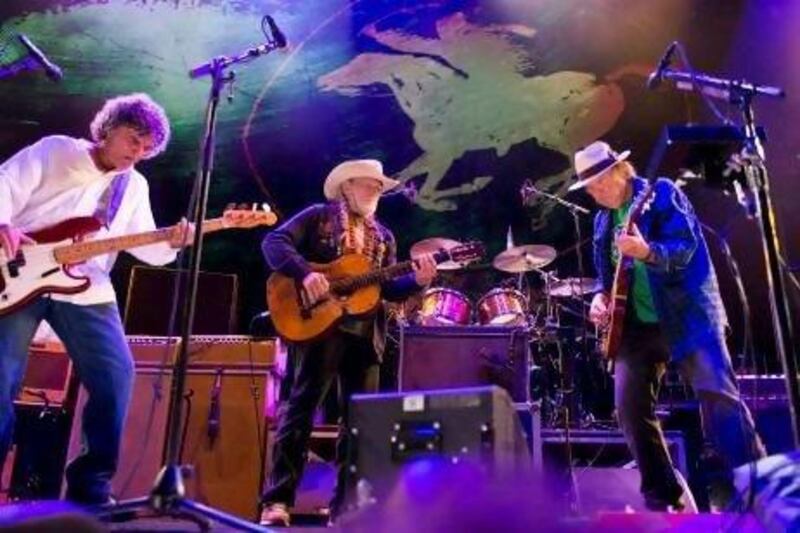ABU DHABI // A team of space explorers and scientists has set course for the far reaches of the desert, seeking out microorganisms that can survive in the harshest Earth environments.
Their week-long camping expedition in Al Gharbia may help to provide long-sought answers about the origins of life on Earth, and about the possibility of life on other planets, such as Mars.
"This microbiology shows the beginning of life, how life got started," said Dr Asma al Ketbi, the head of the Emirates Geographic Society and a geography professor at UAE University. "That could be useful for understanding extreme environments on other planets."
Nasa's Spaceward Bound expedition begins on Sunday and will include local schoolteachers and pupils between the ages of 7 and 12. They will try to simulate human exploration on the moon or Mars.
The research will focus on cyanobacteria, microorganisms that thrive on the sun's intense energy, allowing them to live in dry, hot, desolate areas.
Considered one of the oldest life forms on Earth, these bacteria may help humans to answer questions about possible ecosystems on other planets. The research has been done in deserts around the world, including the Namib Desert in southwestern Africa, the Atacama Desert in Chile and the Mojave Desert in California.
This is the first year that the desert study will be conducted in the Middle East.
Dr al Ketbi, who is leading the UAE science team, chose the desert sights near Liwa, wadis, salt marshes, and remote areas with soil crusts that would hold cyanobacteria ecosystems in place, by protecting them from the wind.
The microscopic organisms have been around nearly as long as the earth, and have played a major role in its transformation. They are credited with discovering photosynthesis, the process of converting sunlight into food. Because the microorganisms are so resilient, scientists believe they are models for understanding how life can exist and evolve on other planets.
Their biosignatures - evidence they leave behind of their existence - could also help in searching for signs that similar organisms, and maybe even life, might have existed long ago on other planets.
"The idea is that when comparing samples from the UAE to samples from other parts of the world and with samples eventually taken from Mars, similarities of the organisms might be found," said AbdulMajeed al Khajah, a medical microbiologist on the team. He is an assistant dean for research and graduate studies at UAE University.
The team will also conduct research on salts in the desert groundwater, and set up year-round data loggers to monitor rain, fog and the growth of the bacteria.
The team will consist of five American Nasa scientists, five UAE scientists from academic and private sectors, 20 Emirati teachers chosen from schools in Liwa, and 50 young local students.
The project is sponsored in part by the Arab Youth Venture Foundation, a non-profit group based in Ras al Khaimah that promotes science, technology, literacy and arts education.
The foundation has collaborated with Nasa on numerous space educational programmes, and is currently accepting applications from Emirati college students studying science, engineering and information and communications technology for Nasa internships.
Spaceward Bound, which began expeditions in 2006, aims to engage, attract, and retain students in science, technology, mathematics and engineering.
The organisation's field expeditions simulate challenges of living in extreme conditions in space, including issues with logistics, transportation and exploration.
Teachers and students will work alongside the scientists during the day, and will participate in groups by night to analyse their experience.
Teachers will be encouraged to design and plan elements of the students' experiences into their classroom curricula.
Previous expeditions have allowed students to experiment with planet-roving machines, space suit designs, and growing edible plants - without soil - by using mineral nutrients in water.






